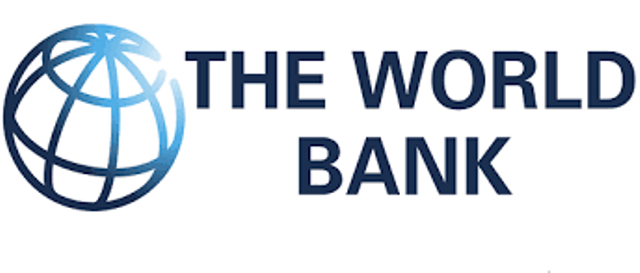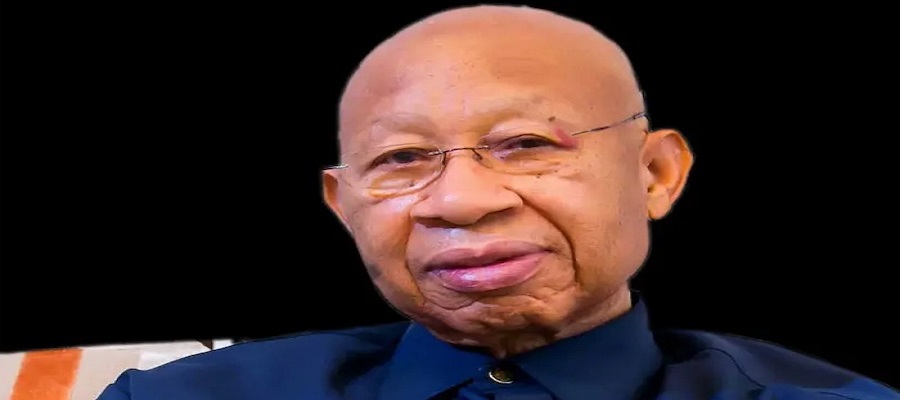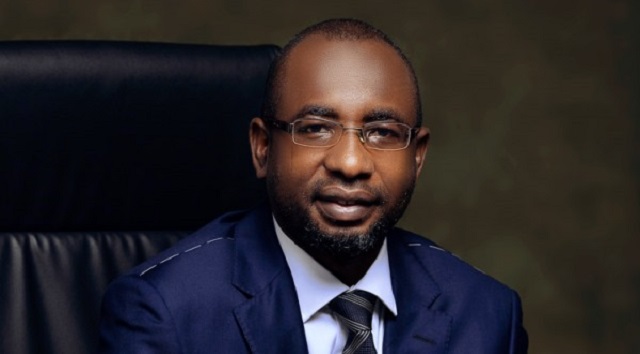News
Depletion of ECA Leaves Nigerian Economy Vulnerable- World Bank

Nigerian economy has become more vulnerable to shocks as a result of the depletion of the Excess Crude Account (ECA), according to the World Bank.

The ECA was established in 2004 to save revenues in excess of the budgetary benchmark price generated from the sale of oil, with the aim of protecting the country’s budgets against shortfalls caused by the volatility of crude oil prices.
The account was expected to insulate the Nigerian economy from external economic shocks.
The ECA rose from $5.1bn in 2005 to more than $20bn in November 2008, but during the last meeting of the National Economic Council in December 2019, Mrs Zainab Ahmed, minister of Finance, Budget and National Planning, reportedly disclosed that the balance as of November 19, 2019 was $324.98m.
In its latest Nigeria Economic Update, the World Bank warned that a ‘moderate’ decline in oil price could trigger another recession, noting that the exhaustion of the ECA had made the country more vulnerable.
“Fiscal buffers in the Excess Crude Account have been exhausted, rendering Nigeria more vulnerable to shocks,” the bank said.
Noting that the account was mismanaged, the report added, “The ECA has rarely operated as envisaged. When it was established in 2004, it was to be drawn on only when the actual crude oil price falls below the budget benchmark price for three consecutive months.
“However, state governments contended that the federal Fiscal Responsibility Act of 2007 creating the ECA was not binding on state and local governments.”
The World Bank observed that the Sovereign Wealth Fund was established in 2011 by the three tiers of government to serve as the oil savings fund for the country.
The SWF has three components – future generations, infrastructure and stabilisation funds.
The stabilisation fund, like the ECA, was to support federation revenue in times of economic stress.
“It was envisaged that the balance in the ECA in 2011 would be transferred to the SWF.
The World Bank said, “Instead, in 2012 seed capital of only $1.5bn was transferred, plus another $0.5bn in 2017.”
The balance of the Stabilisation Account, reportedly as of December 17, 2019, was N30.5bn, while the Natural Resource Fund held N88.3 at the same date.
The World Bank further observed that Nigeria’s consolidated government revenue was very low by the standards of comparable countries.
“During the commodity boom Nigeria’s consolidated government revenue reached 12 per cent of GDP, among the lowest ratios for structural, aspirational and regional peers.
It said, “After oil price and production shocks and Nigeria’s first recession in over two decades, in 2016 general government revenue plunged to six per cent of GDP – second lowest of 115 countries for which data are available.
“Recovering to eight per cent of GDP in 2018, government revenues are projected to plateau there unless there are significant tax policy and administration reforms.”
The bank warned that the prevailing situation will continue to constrain the budget envelope and limit fiscal space for investing in physical and human capital.
In the absence of fiscal buffers such as the one that was supposed to be provided by the now exhausted ECA, Nigeria risks another recession, due to the country’s dependence on oil, the bank said.
It added, “A moderate decline in oil prices could lead to a recession in Nigeria due to its dependence on oil; the Nigerian economy is highly vulnerable to a drop in oil prices.
“The oil sector remains the dominant source of risk for growth of Nigeria’s economy, with sustained suboptimal policy decisions aggravating the size of the potential impact on the economy.
“For example, a sudden decline in oil prices to 2016 levels, sustained for a year, would undermine growth and fiscal balances and the lack of monetary and fiscal buffers would magnify the impact of any shock to the economy.
“If oil prices dropped again by about 25 per cent, the country could swing into a recession, with a more difficult recovery path.”
Evaluating the possible impact of a temporary decline in oil price, the bank noted that the development could subtract up to 0.5 percentage points from growth.
The report projected, “Yet, the indirect (spillover) effects on external and fiscal balances and the financial sector would be significant, similar to, if not worse, than what happened during the 2016 recession.
“Since the Federal Government’s deficit is already twice the size of Nigeria’s revenues, the fall in fiscal revenues proportionate to the 25 per cent fall in oil prices would virtually eliminate space for infrastructure spending, with obvious long-term repercussions for growth.
“With no fiscal buffers available –the Excess Crude Account balance is less than $0.5bn – and no likelihood of external borrowing as investor confidence drops because of uncertainty over Nigeria’s policy response, deficits would have to be financed domestically, sending the cost of borrowing soaring.
“Because there are no buffers, the nonoil economy could contract by more than in 2016, with the economy as a whole shrinking by more than two per cent.
“Recovery would be slow in the absence of structural reforms, even if the oil price rebounded by about 15 per cent as the global economy recovers.”
However, world oil prices jumped nearly $3 on Friday after the United States killed Qassem Soleimani, Iranian military chief, a development which fanned fresh fears of conflict in the crude oil-rich Middle East.
The international oil benchmark, Brent crude, hit $69.16 per barrel, its highest since September 17, 2019, before easing to $68.81 per barrel, while the US West Texas Intermediate surged by $2.03 to $63.21 per barrel, having earlier spiked to $63.84 a barrel, its highest since May 1, 2019
News
MTN Pens Moving Tribute to Pascal Gabriel Dozie, Former Chairman

In a heartfelt tribute, MTN has hailed late Dr. Pascal Gabriel Dozie, an exceptional leader, steady hand and enduring legacy.

Pascal Gabriel Dozie, Former Chairman
In the tribute, MTN said it was deeply saddened by the passing of Dr. Dozie, founding chairman of MTN Nigeria.
He passed away at the age of 85
“We extend our heartfelt condolences to his family, friends, and all who had the privilege of knowing and working with him” the telecom giant said.
A pioneer, statesman, and titan of industry, Dr. Dozie played a pivotal role in the emergence of mobile telephony in Nigeria and in shaping the MTN Nigeria story.
He brought insight, experience, and leadership at a time when bold vision was essential.
He was instrumental in securing the early support and investment that brought the Y’ello dream to life. On May 16, 2001, he made the first call on the MTN network, a historic moment in Nigeria’s telecommunications journey.
For 18 years, from 2001 to 2019, Dr. Dozie served as Chairman, leading with strength and conviction.
His presence on the Board was unifying. He championed good governance, corporate responsibility, and long-term value, deeply committed to the greater good. In challenging times, he remained a stabilising force.
“His unwavering belief in Nigeria’s potential and his dedication to its development were truly inspiring. His leadership at MTN Nigeria laid the foundation for our success, and his legacy will continue to guide us in the years to come,” Karl Toriola, CEO, MTN Nigeria.
Some of his landmark contributions include:
The incorporation of the MTN Nigeria Foundation in 2004 and our commitment to dedicating a percentage of profit after tax to social investments;
The launch of one of Africa’s largest switching centres in 2010;
His significant role in 2015 during critical conversations around the regulatory fine and its resolution;
The introduction of Africa’s first 3G feature phone in 2018;
MTN Nigeria’s listing in 2019 on the premium board of the Nigerian Exchange.
“Dr. Dozie was instrumental in MTN Group’s expansion into Nigeria, providing visionary leadership that has left an indelible mark on our company’s history. His commitment to excellence and integrity set a standard that we continue to uphold,” Ralph Mupita, president & CEO, MTN Group.
His legacy goes well beyond MTN. He believed in Nigeria’s potential and dedicated his life to building a stronger nation.
His impact spanned banking, telecommunications, education, and public service.
He founded Diamond Bank, led the Nigerian Economic Summit Group, and served as Director of the Central Bank of Nigeria, among many other distinguished roles. A generous mentor, he inspired and guided countless individuals who continue to uphold the values he lived by.
He was a quiet revolutionary. He could ease tensions with grace and consistently led with clarity and conviction.
He was warm, principled, and deeply respected by all who encountered him.
Fondly known as PGD, he was honoured with the national awards of Officer and Commander of the Order of the Niger (OON and CON).
Beyond the accolades, what we remember most is the man himself. He was innovative, dedicated, measured, thoughtful and humble.
“We are profoundly grateful for his time with us. His memory will remain a guiding light for MTN, Nigeria’s business community, and everyone who shares his unwavering commitment to progress built on integrity and service” MTN stated
News
NIGCOMSAT, Jigawa State Empower 150 Youths on Satellite New Innovations

Nigerian Communication Satellite Limited (NIGCOMSAT) in collaboration with Jigawa state government, commenced training of 150 youths on satellite technology and digital communication.

Jane Egerton-Idehen, managing director, NIGCOMSAT limited,
Speaking at the opening ceremony of the training, held at Manpower development Dutse, Jane Egerton-Idehen, managing director, NIGCOMSAT limited, highlighted the role of NIGCOMSAT in driving grassroots innovation in Jigawa state.
She explained that, the training is organised by Nigcomsat supported by Jigawa state government with the theme: “Space Technology for grassroots development”, aimed at empowering youths on digital innovations to create jobs opportunities and boost economy.
“The Nigcomsat youth empowerment programme, Jigawa is a groundbreaking initiative aimed at equipping young minds with cutting-edge knowledge in satellite technology and digital communication”, she said.
The MD maintained that, the program designed to Foster innovation, enhance technical skills and create opportunities for youths in the ever-evolving space-tech industry.
According to her, during the training two key sub-program will be featured, Spacehack 2025 aimed at developing satellite technology to tackle real world challenges in areas like agriculture, disaster management, telecommunications and security issues.
She maintained that, the other part of the training focused on Very Small Aperture Terminal (VSAT) technology, a satellite communication system that uses small antennas to transmit and receive data, voice, and vedio signals.
In his remarks, Dr Habib Muhammad Ubale, director general, Jigawa State Economic Empowerment and Youth employment agency, urged the participants to concentrate, acquire the skills and stepdown the skills to others for better development.
Dr. Habib who is the effort is one of the twelve points agenda of Governor Malam Umar Namadi said, the training will create thousands of jobs, improve economy and reduce security challenges in the state.
News
Nigeria Set to Host Landmark GITEX Event in West Africa

In a major stride towards positioning Nigeria as a global technology hub where digital technology is leveraged to uplift the nation, the Federal Government of Nigeria, through the National Information Technology Development Agency (NITDA), has announced its strategic partnership with KAOUN International to host the world-renowned Gulf Information Technology Exhibition (GITEX) in Nigeria.

This announcement was made at NITDA’s corporate headquarters in Abuja during the inauguration of the Local Organising Committee (LOC) which comprises representatives from key public and private sector stakeholders, underscoring a unified national effort to deliver a world-class tech conference on Nigerian soil.
This maiden edition of the event which is themed “Forging the Rise of Digital Nigeria” is expected to have not less than 1000 startups, over 100 investors and an attendance of over 20,000 participants which would be held in Abuja and Lagos between 1st and 4th of September 2025.
GITEX Nigeria is set to bring together global tech leaders, innovators, investors, startups, and policy makers, opening up new avenues for collaboration, investment, and technological exchange.
The event in Abuja will witness government leadership and AI summit to unite government leaders and global tech executives to drive national projects, including digital infrastructure expansion, AI adoption and public sector innovation while in Lagos, which is the commercial hub of the country, GITEX aims to spotlight the nation’s tech ecosystem, promoting startups, attracting investment, growth driving multi-sector economic diversification to a global audience.
Speaking at the event, the Director General of NITDA, Kashifu Inuwa who was represented by the Director of the ITIS department, Mr Olawumi Oladejo, expressed his gratitude and enthusiasm for the milestone achievement and thanked everyone for all the effort they have been putting into the actualisation of the great event in Nigeria.
He emphasized the potential impact of hosting such a prestigious event, stating that it would not only elevate Nigeria’s international profile but also boost local businesses, drive tourism, and provide a platform for innovation and partnerships.
“We all know the positive impact that hosting this kind of event will bring to the country. It will boost our international standing and scale our local businesses and tourism. This event is part of our way of implementing a major pillar, Forging Strategic Partnerships and Collaborations of the agency’s Strategic Roadmap and Action Plan (SRAP 2024–2027),” he added.
According to the DG, the implementation of the GITEX Nigeria is in line with the 8-point agenda of President Bola Ahmed Tinubu GCFR through the implementation of the agency’s SRAP.
Noting that the GITEX model has expanded to North Africa, specifically in Morocco, Inuwa asserted that Nigeria’s hosting of the event will mark its first footprint in West Africa.
While assuring the stakeholders of presidential backing for the initiative, the DG concluded that “if we can successfully host this, it will open the door for Nigeria to lead digital transformation efforts across the region.”
In his presentation on the overview of the GITEX Nigeria preparations, the Director of the Stakeholder Management and Partnerships department, Dr Aristotle Onumo stated that the vision of the event is to elevate 6 local startups to global standards in 3 years.
He added that the event which will be anchored on 3 fulcrums; enablement, engagement, and knowledge to enhance growth in the Telecom, Fintech, Agritech, Edtech, e-Commerce, Healthtech as well as data centres in reinforcing data sovereignty and other sectors.
Speaking on the opportunities the event will bring in terms of boosting investments into the Nigerian Tech Ecosystem, he noted that “78% of startups are expecting to receive funds from investors as a result of their participation in GITEX.”

 News3 days ago
News3 days agoAOT Issues Bench Warrant against Sanusi, Aero Contractors MD

 News3 days ago
News3 days agoUS Cancels Visas for All South Sudanese Passport Holders

 News3 days ago
News3 days agoMeningitis Outbreak Kills 151 in Nigeria – NCDC

 News3 days ago
News3 days agoAfrimash Launches USSD Code to Revolutionize Poultry Farming and Combat Counterfeit Farm Produce

 News3 days ago
News3 days agoSERAP Calls on Tinubu to Reject $1.08Bn Loan, Probe Missing Funds

 Broadcasting2 days ago
Broadcasting2 days agoMTN Battles Netflix, Showmax with New Streaming Platform

 News2 days ago
News2 days agoHow KongaFM 103.7 Helped Cure My Insomnia Challenge

 News2 days ago
News2 days agoFG to Invest in Cutting-edge Broadcast Technology



























